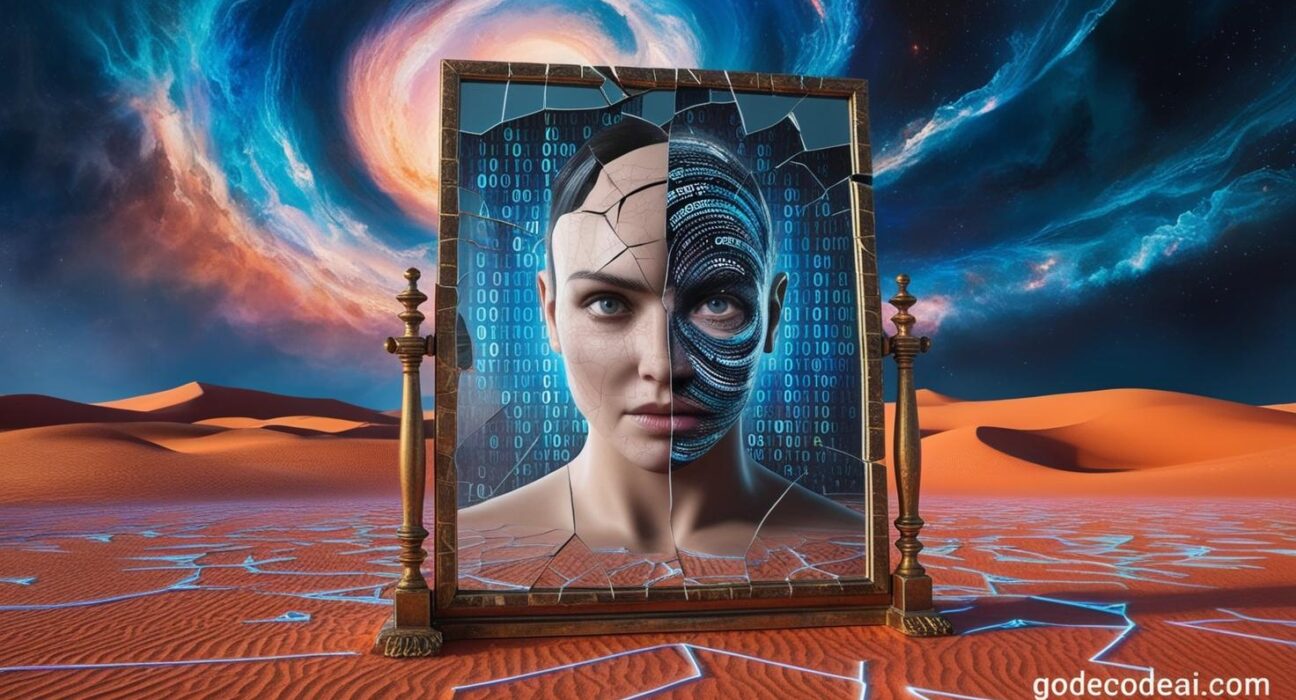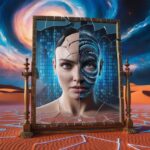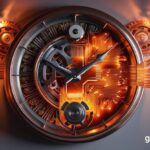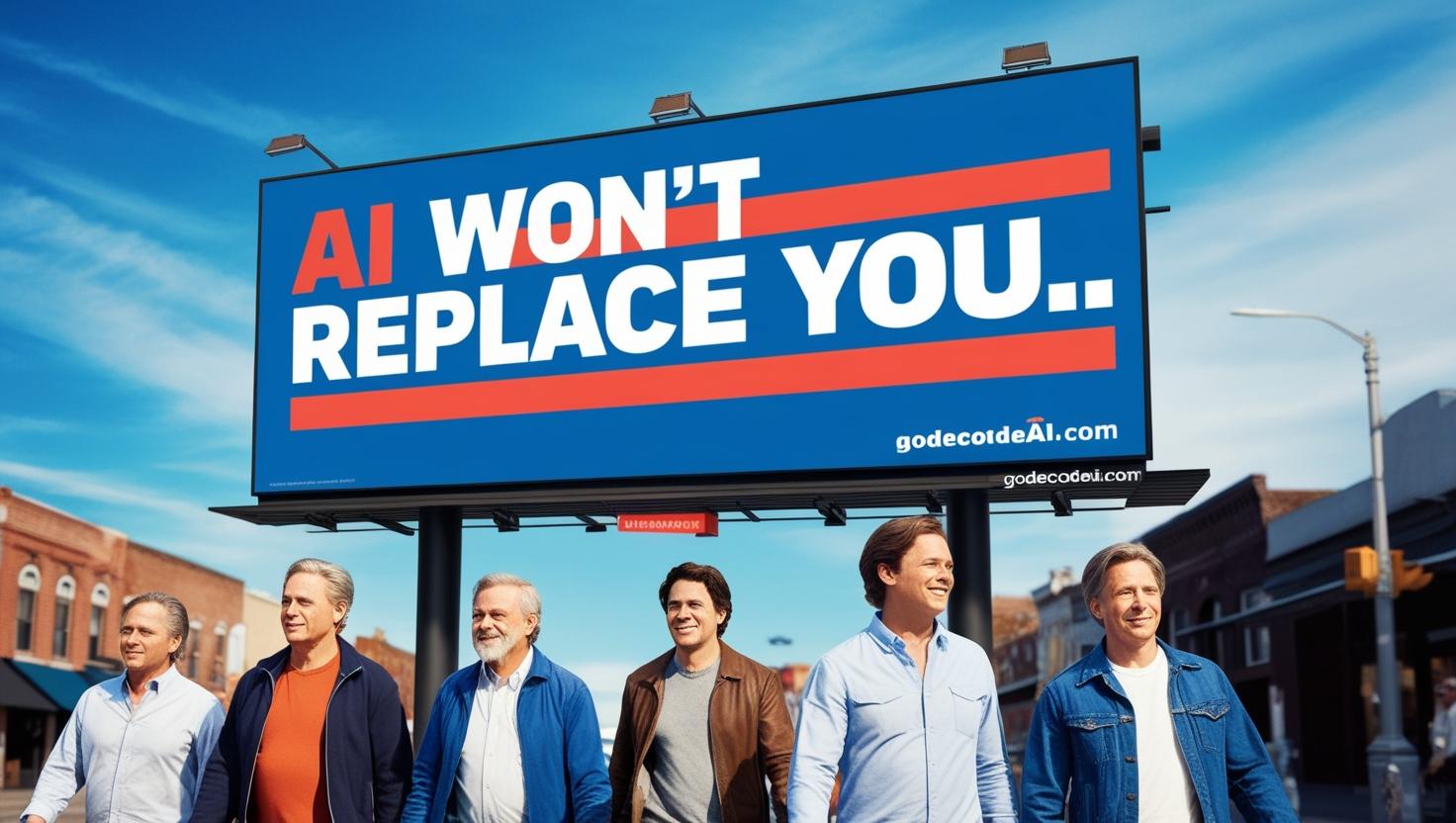If AI seems magical, it’s only because we haven’t looked close enough. What you’ll find isn’t a wizard—it’s a mirror, reflecting us.
The Illusion of Magic
Let’s get this out of the way: AI is not magic.
It doesn’t think.
It doesn’t feel.
It doesn’t “know” you—not really.
But in 2025, it’s easy to forget that. With tools like ChatGPT writing essays, generating code, and even “understanding” humor, AI seems almost… human.
And yet, the truth is more grounded—and more empowering—than that.
AI isn’t here to replace you. It’s here to reflect you. Your patterns. Your biases. Your brilliance. Your blind spots.
Let’s decode this.
🧠 What AI Really Is: Just Math and Mirrors

At its core, AI—especially the kind we interact with (like ChatGPT, Claude, or Gemini)—isn’t a brain. It’s a statistical engine trained on unfathomably large amounts of data.
It predicts the next word, the next image pixel, the next sound, based on patterns it’s seen before.
That’s it. No soul. No spark. Just an insanely fast mimic.
Imagine this:
You feed an AI 10 million cooking recipes.
You ask it, “What should I cook tonight with eggs, tomatoes, and garlic?”
It doesn’t “decide.”
It simply mirrors the thousands of recipe combinations it has seen—and ranks the most probable, based on your prompt.
That’s not intelligence. That’s reflection.
🤖 Why It Feels Smart (But Isn’t)

So why does it feel so intelligent?
Because we project ourselves onto it.
- You write a thoughtful prompt → AI gives a thoughtful answer
- You ask a deep question → AI mirrors deep-sounding responses
- You joke → It jokes back (because it’s learned what a joke “looks like”)
AI passes the “mirror test” not because it sees us—but because it reflects what we’ve taught it to say.
⚠️ The Mirror Cuts Both Ways: Bias, Hallucination & Hype

When we treat AI like a mirror, we begin to see its flaws not as bugs, but as reflections of us:
- Bias in AI? It’s just echoing the bias in the data we fed it.
- Hallucinations? Those are artifacts of incomplete or conflicting data—just like human memory.
- Echo chambers? AI intensifies them when fed feedback loops of viral, biased, or low-quality content.
AI doesn’t lie because it wants to.
It “lies” because it’s reflecting inconsistencies in the training data—our inconsistencies.
🧭 So What’s the Point of AI, Then?
Power. Not magic.
The real gift of AI is scale:
- You can brainstorm 10 content ideas in seconds.
- Translate into 20 languages instantly.
- Process 100 pages of data in minutes.
But the output is only as smart, original, or ethical as you are.
It’s not an oracle. It’s an amplifier.
This means:
- If you’re clear, AI will help you scale clarity.
- If you’re confused, AI will echo your confusion.
- If you’re creative, AI becomes a paintbrush, not a painter.
✍️ My Personal Take
As a software engineer and content builder, I’ve used AI to write, code, market, analyze, and learn. But here’s the truth:
Every time AI “wowed” me… it was only showing me back to myself—faster.
- The bad prompts gave bad results.
- The great ones felt like a co-creation.
That’s not magic. That’s mirror logic.
🧠 How to Use AI With This Mindset
Here’s how to stay grounded when working with AI:
| Mirror-Minded Habit | Why It Matters |
|---|---|
| Prompt with intent | Garbage in, garbage out. Clear in, clarity out. |
| Fact-check always | AI doesn’t “know”—it estimates. Verify! |
| Personalize deeply | Generic prompts = generic outputs. Your voice matters. |
| Be skeptical of hype | AI doesn’t “think” yet. Beware anyone who says otherwise. |
💬 Final Word: Don’t Worship the Mirror—Wield It

AI isn’t here to replace humans.
It’s here to reveal us.
It shows what we’ve said, what we’ve coded, what we’ve valued.
But more than that—it gives us a chance to redirect the reflection.
To build with intention.
To create with integrity.
To scale with humanity at the center.
The mirror is powerful. But the person holding it is what truly matters.
🔍 FAQ
Q: Does AI actually understand me?
A: No. It mimics understanding by learning patterns from massive data. It’s prediction, not comprehension.
Q: Can AI replace human creativity?
A: It can assist and scale creativity, but it lacks intention, emotion, and lived experience—core to true creativity.
Q: Why does AI sometimes hallucinate?
A: Because it’s trained to predict, not fact-check. When unsure, it “fills in the blanks” based on statistical guesses.
Q: Is AI dangerous?
A: The real danger is blind trust. The mirror is only harmful if we mistake it for truth.







